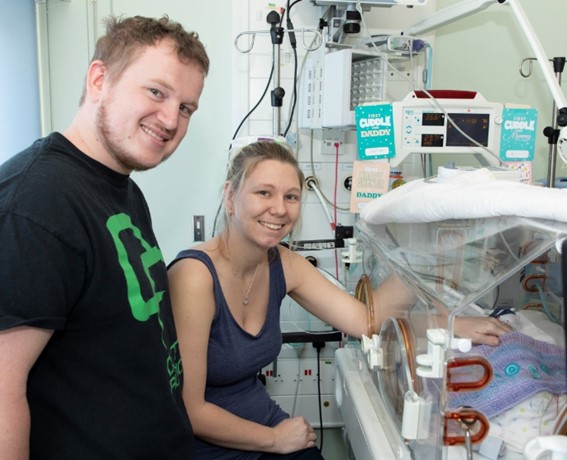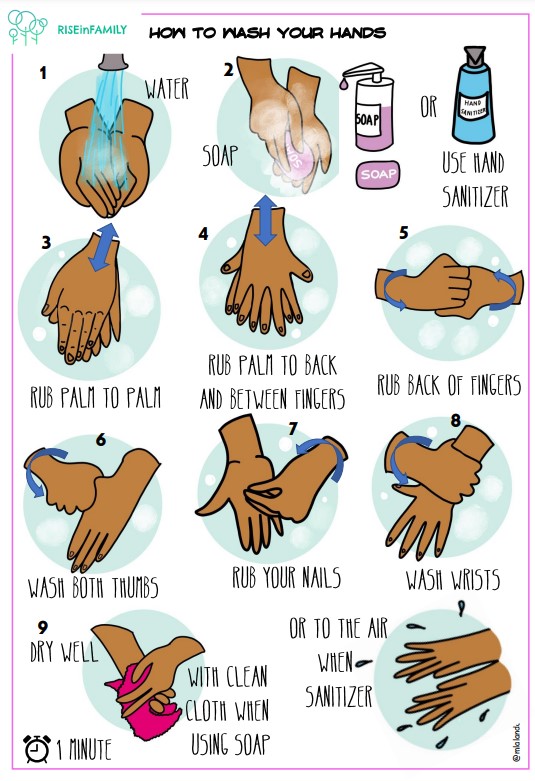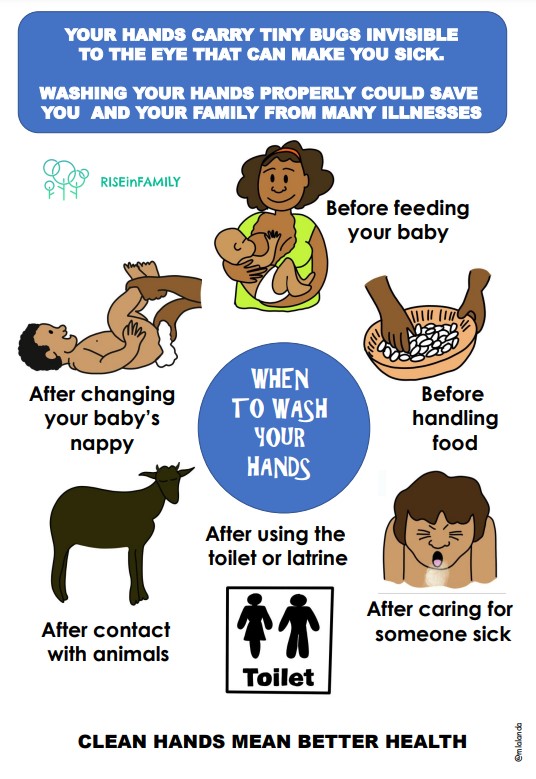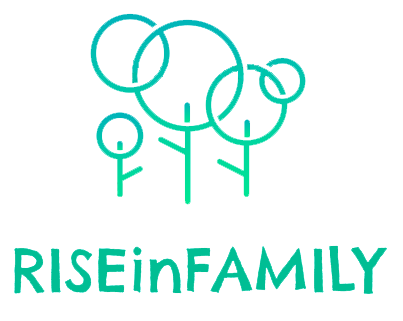TAKING PART IN BABY CARE
Hygiene
Hygiene rules
Newly born babies, and certainly those who are born early, do not yet have much resistance against infections. You can find more information about this in the article ‘Characteristics of a premature baby’. This is why the neonatal unit has a number of hygiene rules that you must follow. In many neonatal units, wearing hand or wrist jewellery (rings, bracelets, watches) is not allowed. Before entering the department or room where your baby is, you should disinfect your hands with alcohol gel or with water and soap. If your hands are visibly dirty, you should wash your hands with soap and water. You should also disinfect your hands after changing a nappy.
If you have the flu or another contagious illness, we advise you not to come into the neonatal unit. If you have a cold or cold sores, then wearing a face mask and extra hand hygiene is usually sufficient. If you are unsure, then please ask one of our team members and we can advise you on this. Visitors (other than the parents), who are ill, have cold sores or have been in contact with a contagious illness, should not come to the department.
See also the articles “Washing hands” and “Disinfecting hands”.

Island nursing
In the department of neonatology, nursing is often based on the principle of island nursing. Your baby, the bed, and all the equipment around it are regarded as your child’s island. If medical staff enter the island and are in direct contact with your baby or the bed, they will disinfect their hands and possibly put on an apron and gloves. On leaving the island, they will take off the apron and gloves and disinfect their hands again. We work following this principle of island nursing in order to prevent the possible transmission of germs from one baby to another.
Washing hands
When you enter your baby’s island or room, you should always wash your hands carefully, especially if there is visible dirt on them. If at all possible:
– Turn on the tap with your elbow or wrist.
– Rub soap over your hands and wrists and wash them for 30 seconds.
– Rinse your hands carefully and dry your hands with the paper towels.

Disinfecting hands
Use the sanitiser dispenser according to the department’s guidelines. Use as much hand alcohol for your hands as needed to fill your hand.
– Spread the hand alcohol over your hands and clean your hands thoroughly, paying special attention to your fingertips, thumbs, between the fingers, wrists and forearms.
– Rub your hands for at least 30 seconds and after that for as long as it takes for your hands to be completely dry.

Isolation
There are different forms of isolation. A card is visible at the door of your baby’s room if isolation is applied.
Is used to counter the spreading of microorganisms, like bacteria and viruses, that are found in your baby. Nurses wear aprons or robes and gloves while caring for your baby in contact isolation.
Is done to prevent the spreading of bacteria and viruses by air and saliva (for instance, a cold caused by the RSV virus). For droplet isolation, nurses wear facemasks, aprons and gloves while caring for your baby.
Is a form of isolation that is used when, for example, there is a transfer from abroad. Your baby will be hospitalised in a special room, or in a closed part of the room/ward. The nurses will change clothes in the special room, outside the closed section or outside the department, before entering the room or department. The nurses will wear an apron, cap, gloves and a face mask when entering the room or department. If your baby has been transferred from a foreign hospital or from another NICU, an MRSA test is done. The MRSA bacteria is bacteria that has become resistant to many antibiotics. If the MRSA bacteria is not found in the test, the isolation will be stopped. For you as a parent, strict isolation means good hand hygiene, and not visiting any other patients on the ward or in the hospital. You should take the shortest route to the exit and carry any things from the room/department in a plastic bag.
If you have any questions, you can ask any of the nurses.
Smartphones and tablets
It is impossible to imagine a world where smartphones and tablets are not used anymore. That is why they may be used in the department. It is a known fact that bacteria, viruses and fungi may be found on tablets and smartphones. Those bacteria, viruses and fungi can be transmitted onto your baby. Smartphones/tablets should be considered as ‘dirty’, the displays as well as the covers. Clean your phone or tablet regularly. For your own baby´s peace and quiet and for all the other babies, we request you do not have telephone conversations in the room.




